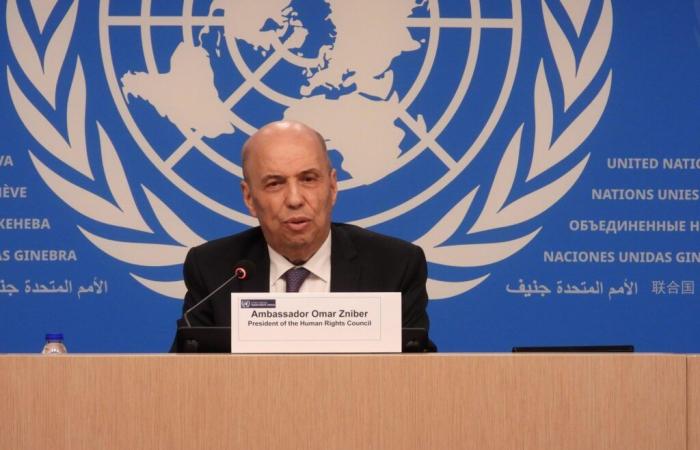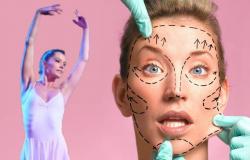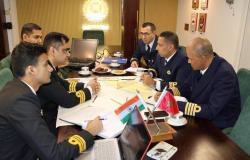At the end of this year, Morocco completes a most successful mandate at the head of the Human Rights Council (HRC), leaving a legacy that will be a landmark in the reform process of this body which is the repository of the fundamental principles of dignity. human.
Looking back on a long year which saw him chair three sessions of the HRC, sessions of the Universal Periodic Review, hold numerous consultations and diplomacy exercises and launch innovative initiatives, the permanent representative ambassador of the Kingdom at the UN Office in Geneva, Omar Zniber, only feels “pride” and a feeling of “duty accomplished”.
This assessment is also, it must be said, a consecration of the well-deserved confidence which the Kingdom enjoys with this august Council, 30 of whose members had supported its candidacy for the presidency, on January 10, compared to only 17 for that of the South Africa, despite a fierce campaign led by Morocco’s adversaries.
Faithful to the line held by Morocco during its three mandates within the HRC, favoring dialogue, gathering and consensus, Mr. Zniber strove, in the exercise of his responsibility at the head of the HRC, to “respect the balances and rules in force, to demonstrate impartiality and integrity, but also and above all to listen to everyone”.
Throughout the past year, the Palais des Nations in Geneva has witnessed the painstaking work carried out by the Moroccan presidency and the multiple initiatives it has launched on the path to rationalization and efficiency of the Council while by opening its field of action to hitherto neglected areas.
It is in this context that the Moroccan presidency organized an international meeting on the impact of artificial intelligence on the enjoyment of human rights, which focused on the ethical aspects of this issue as well as on the digital divide at the origin of the strong concerns it generates.
Morocco also organized an important meeting around climate change, another theme made a priority by the Moroccan presidency, given its impact on people’s lives and international mobility.
Another important initiative is not the least, that of the creation of an Advisory Council on Gender Equality within the HRC, hailed as a “historic first” by HRC stakeholders and civil society in Geneva. The mission of this new structure is to strengthen the discussions and action of the HRC in matters of equality and gender parity, and more broadly to ensure that this issue, which is at the center of human rights concerns, Man, become a reality on an international level.
Based on the principles and values driven by HM King Mohammed VI, who made the irreversible choice of consecrating the rule of law and respect for human rights, the Moroccan presidency of the HRC was also the ideal opportunity to highlight the steps taken by Morocco in this area and above all to share with the world its outstanding experience of transitional justice, during a seminar organized at the end of September at the Palais des Nations to celebrate the 20th anniversary of the Equity and Reconciliation Authority (IER).
And to crown a mandate rich in achievements and initiatives, the Moroccan presidency took all the members of the Human Rights Council and the High Commissioner for Human Rights for a retreat at the end of November in Rabat. This informal framework conducive to reflection was an opportunity to discuss the main challenges and issues in terms of the promotion and protection of human rights and explore ways of reforming the Council.
In the opinion of several heads of permanent missions to UN-Geneva, Morocco’s mission as president of the HRC was “more than accomplished” both in form and in substance, leaving a legacy rich in innovative initiatives that will forever mark the work of the Council.






